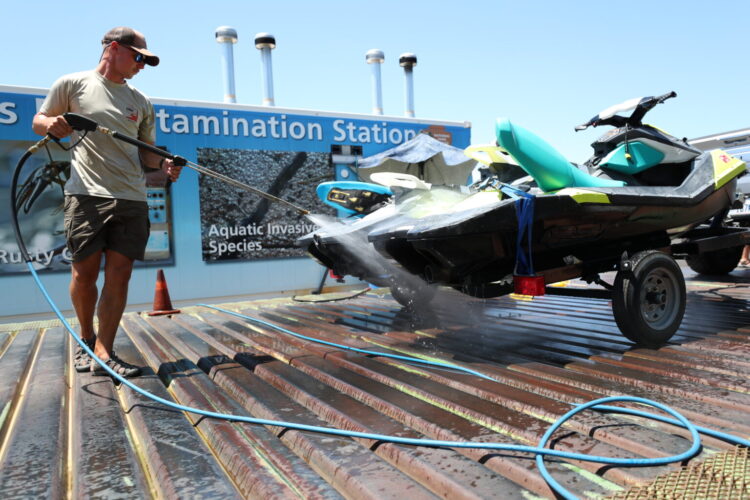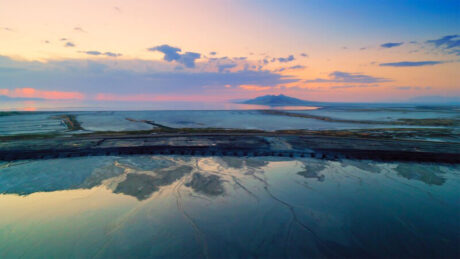Utah decontaminates more boats from quagga mussels and other invasive species in 2025

Courtesy Utah Division of Wildlife Resources
A Utah Division of Natural Resources employee works at an aquatic invasive species decontamination station.This year’s boating season report on invasive species decontamination efforts at Lake Powell and other Utah waterbodies registered larger numbers than in 2024.
Technicians from different Utah, Arizona and federal offices inspected over 288,500 boats and performed 6,509 decontaminations of quagga mussels and other aquatic invasive species like Eurasian watermilfoil since the start of 2025, according to a release from the Utah Division of Wildlife Resources.
That’s an increase from the 6,383 boats decontaminated in 2024. But the state is overall happy with boaters’ compliance to keep invasive species from spreading in the state, said Lt. Bruce Johnson, from the Utah Department of Natural Resources Law Enforcement Aquatic Invasive Species Statewide Operations.
“We really appreciate everyone’s efforts,” Johnson said. “And while the boating season is winding down for the year, make sure to plan ahead for next year and be sure to take the mandatory education course, pay the required fees, and display the necessary decals on your watercraft, so you can be ready for another great boating season next year.”
Currently, the only waterbody infested with quagga mussels in the state is Lake Powell, the division said in the release, however, contamination was also found in other waterbodies in Utah coming from infested reservoirs outside the state.
The state highlighted that quagga mussels can have different negative impacts. They can plug water lines. If they get into water delivery systems, it can cost millions of dollars a year to remove and result in higher utility bills. They also remove plankton from the water, hurting fish species, damage boats’ engines and stink when they die in large numbers.
That’s why all boaters in the state are required to take a mussel awareness online course each year, and clean, drain and dry their boats before launching in other waters. Those with motorized watercrafts have to pay an enrollment fee, and get a decontamination certification if their last launch was outside the state or at a mussel-infested waterbody.
“During the winter season, there aren’t many available watercraft inspection staff at the stations across the state,” Johnson said. “So we ask boaters going to Lake Powell — or to neighboring states’ mussel-infested waterbodies — to please either have their watercraft decontaminated at that location before leaving, or to call us ahead of time if they are going to need a decontamination before their next launch.”
Utah News Dispatch is part of States Newsroom, the nation’s largest state-focused nonprofit news organization.



